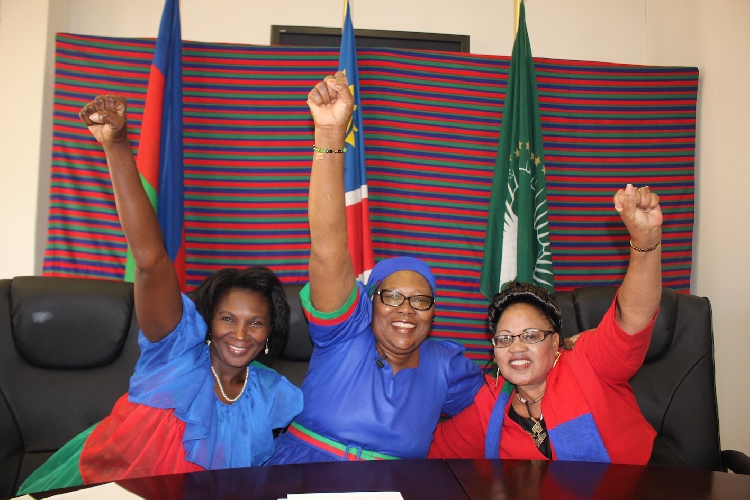IN an unprecedented outcome, women have garnered the first eight highest votes compared to their male counterparts in the Swapo Party Central Committee elections.
A total of 20 532 votes were counted in the female CC contest, while 20 734 were counted for the men with a total of 766 delegates at Swapo’s 6th congress that concluded on Sunday.
Prime Minister Saara Kuugongelwa-Amadhila garnered the most votes for the CC with 628, while incoming deputy secretary general and former deputy prime minister Marco Hausiku topped the men’s list with 479 votes.
Women have also emerged victorious among the party’s top four positions, with minister of international relations Netumbo Nandi-Ndaitwah elected as the deputy Swapo president, while the secretary general’s position went to minister of urban and rural development Sophia Shaningwa.

Shaningwa will now be expected to resign from her ministerial portfolio as Swapo’s secretary general’s position is a full-time job.
Swapo adopted the zebra-style representation in its structures after amending its constitution at an extraordinary congress in 2013.
Kuugongelwa-Amadhila yesterday explained that the gender equity policy in Swapo is about achieving equity between men and women in general, and mobilising the capabilities of all party members to realise the policies of the party.
“This is also the case at government level. It is not about personal achievements in terms of how many votes one gained from elections, or career advancement for individuals,” she told The Namibian yesterday.
Kuugongelwa-Amadhila congratulated the women who participated, and those who succeeded in getting elected into various positions.
“I applaud Swapo for being a pioneer in promoting gender equity, both in the party and in government,” she noted.
“If the Swapo members so decided, then we will have a female president in future,” she added.
The executive director of Women’s Action for Development, Salatiel Shinedima, described the latest results as social justice where people are given equal opportunities to power, and applauded the ruling party for paving the way for women to rise up the ranks.
“This is definitely a paradigm shift and a positive development in terms of women’s empowerment. Those who have questioned the capabilities of women will now be proved wrong,” he stated.
“If other parties want to garner more votes, they should follow this example,” he added. Shinedima also believes the party is ready for a female president, given the ascension of women to high positions in Swapo.
He, however, said more young women needed to be involved and learn from the older generation.
The programme manager at the Women’s Leadership Centre, Liz Frank, said having more women in the top hierarchy of the ruling party’s leadership means very little if they do not use their positions to tackle issues that are affecting women at grassroots level.
“They have been silent all along on women’s issues, such as the distribution of sanity pads among schoolgirls, women’s reproductive health rights, harmful cultural practices and teenage pregnancy. So, what does it help to have many of them in the central committee if these issues go unresolved?”, she asked.

